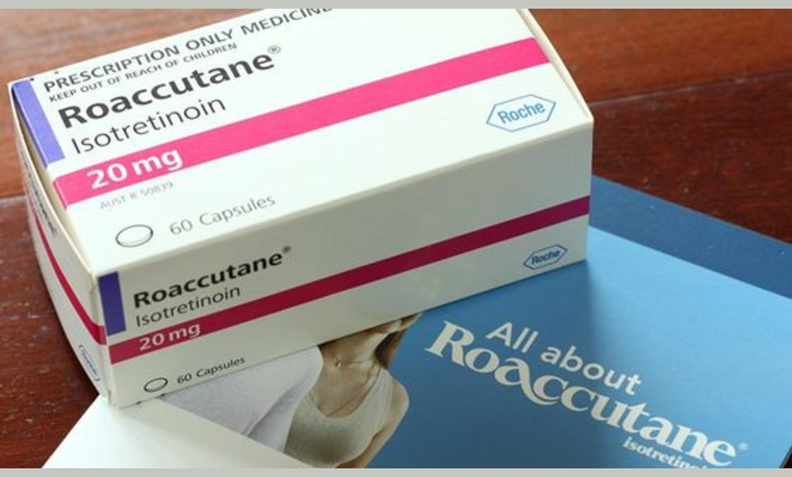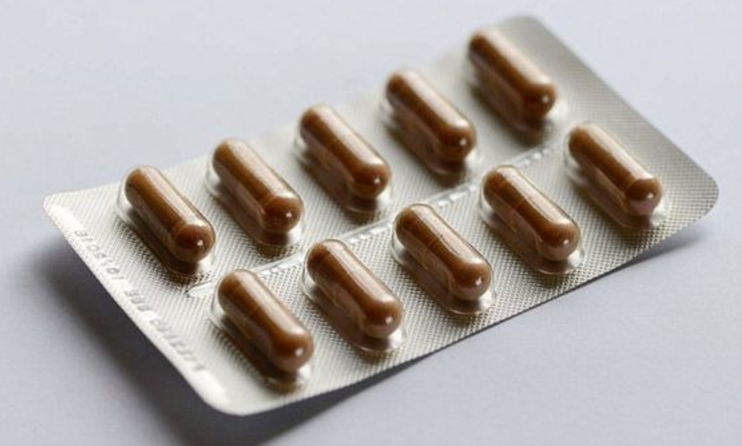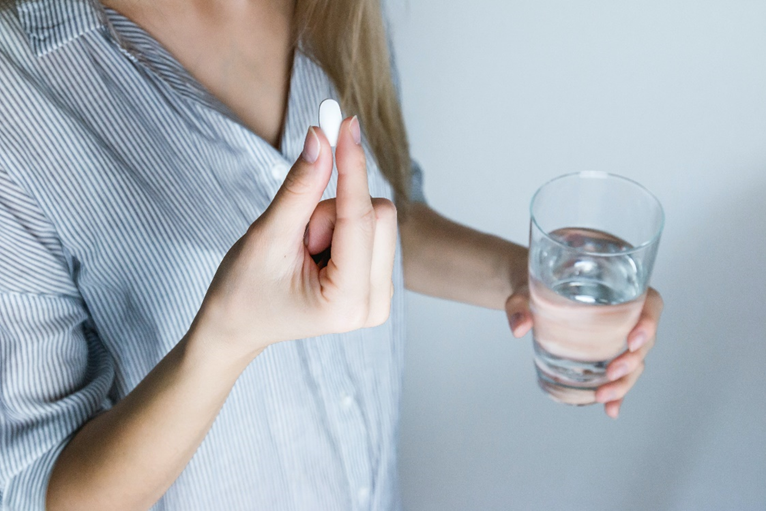What is Roaccutane?


Roaccutane is a prescription acne treatment. It can only be prescribed by doctors with prior experience with this medication who are trained to administer it properly. This article will define what Roaccutane is and discuss some of its side effects. It will also examine the medication's long-term negative effects and advise on when to seek immediate treatment and consult a doctor.
Roche's Roaccutane, a drug used to treat severe acne, comes in tablet form under the brand name Accutane. Since 1983, Roche's isotretinoin has been offered in the UK. Roche licensed its isotretinoin in 1982 to be sold in the USA under the name Accutane. This medication is available as capsules and is meant to be taken once a day or twice a day for a typical duration of four to six months.

Many companies make isotretinoin, but all of them use the same recipe. However, when other companies manufacture isotretinoin, the only label on the package will read "Isotretinoin." This is called a generic version of the medication and is identical to branded versions of Roaccutane and Accutane. Roaccutane is the most effective treatment for severe acne.
Isotretinoin is a retinoid used by dermatologists to treat severe acne cysts and nodules. When other treatments fail, isotretinoin can help reduce or eliminate severe acne while preventing new acne scars. But it should only be used under a medical doctor's guidance because it can seriously harm certain patients.
Roaccutane is a retinoid, a kind of medication that also contains Accutane, and it functions by reducing the quantity of sebum made by skin glands. You first need to be aware of the causes of acne to understand how Roaccutane works completely.
Hair follicles are connected to sebaceous glands, which are found close to the skin's surface (the holes that hairs grow from). Sebaceous glands secrete an oily fluid called sebum that keeps the hair and skin moisturized. The sebaceous glands produce excess sebum in acne patients. This combination of dead skin clogs hair follicles, causing them to become infected by bacteria on the skin. A painful place such as a pustule or cyst can develop if this happens. Isotretinoin, the drug's active component, prevents the appearance of acne symptoms. This is achieved by:
Lowering the quantity of sebum produced by your sebaceous glands, which may reduce the amount of acne that your skin has.
Or, by eliminating skin bacteria that could infect follicles clogged with dead cells
In addition, Roaccutane directly lowers inflammation in the skin by reducing sebum production. This reduces acne risk with this approach.

The most efficient acne medication now on the market is Roaccutane as isotretinoin capsules. It is excellent for:
Cysts. Taking Isotretinoin is effective at reducing acne cysts.
Inflamed acne. Inflammatory lesions can be removed with isotretinoin, including red papules, pustules, and nodules. After using this medicine on inflamed patches on your body, they flatten out, stop growing larger and start to disappear.
Blackheads. Taking Isotretinoin is effective for treating both open and closed blackheads. However, large, closed blackheads may not be clear with isotretinoin, in which case they should be treated with a hyfrecator before starting a course of isotretinoin.
Oiliness. Many people will notice that their skin and hair become less glossy as a result of isotretinoin's reduction of skin grease production, which most likely contributes to a reduction in acne.
After seven to ten days of treatment with Isotretinoin, your skin should start to improve. This can happen even if you have not seen any improvements before starting treatment. Your acne may temporarily increase in severity before this, so you need to continue treatment until your symptoms get better. Isotretinoin treatment typically lasts four to six months per course. The skin's appearance can be effectively improved by taking the capsules once or twice a day, which can last for up to a few weeks following the course of therapy. Most patients conclude their treatment with entirely clear skin.

Roaccutane is an acne medication that can be used to treat severe acne in both adolescents and adults. If your acne is causing psychological discomfort, scarring, or hyperpigmentation brought on by inflammation or is difficult to treat with other antibacterial treatments, you may be able to use isotretinoin capsules.
It is not suitable or recommended for certain patients, which include:
Those who have previously experienced an adverse reaction to isotretinoin or any other drug do not use this medication.
For patients trying to conceive, become pregnant, or are breastfeeding, it can harm the child and increase the risk of miscarriage.
Other groups of people who should avoid capsules include people with an active infection at the time of treatment or those who have received chemotherapy within one month of starting isotretinoin therapy.
Those who suffer from a mental illness, such as depression, aggressive behaviour, psychosis, or suicidal thoughts
People who have liver or kidney disease, high amounts of cholesterol or other lipids in their blood, or a high quantity of vitamin A in their bodies
NHS reports that more than one in every 100 people experiences Roaccutane capsule side effects. The most common side effects of Roaccutane are:
While taking Roaccutane, it is common to suffer one or more of the following side effects:
Dry skin cracking or peeling skin
Dry or inflamed eyes
Dry chapped lips
Vaginal dryness
Dry nose with a nosebleed
The dryness will go away once you stop using the prescription. Until then, moisturizers, lip balm, vaginal hydrating products and artificial tears can provide relief. Apply wax just inside your nose to relieve nosebleeds. This keeps the tissue wet, which helps to prevent nosebleeds.
Anyone who intends to get pregnant or could unintentionally become pregnant or breastfeeding mothers avoid taking Roaccutane because it may cause:
Miscarriages
Inherited disabilities
Premature labour
Stillbirth
Patients must have pregnancy tests before being given a prescription for isotretinoin. Taking Isotretinoin during pregnancy carries a very high chance of severe birth defects, so they must consent to perform monthly pregnancy tests.
There is an IPLEDGE program for women, which is very strict. If you are a woman expecting pregnancy, you should perform two different kinds of birth control and pregnancy tests while taking this medicine.
It's possible that taking Roaccutane will make you incredibly sensitive to the sun and UV rays. The skin may also have some allergic reactions to ingredients in isotretinoin, including mild itching, skin irritation, fragile skin infections and rashes. Dermatologists encourage patients to practice "safe sun" to protect their skin from the sun's harmful rays. Once patients stop using the drug, their sensitivity to sunlight and skin allergies will disappear.
While taking isotretinoin, you may experience headaches, aches, muscle pain, stiffness, and bone joint pains. These are typically not serious and can be controlled with periodic administration of acetaminophen. If they become serious, notify your doctor. You must refrain from strenuous exercise or starting a new workout routine while taking Roaccutane.
The National Health Service reports that severe side effects of Roaccutane are uncommon, occurring in less than one in 1,000 patients. Even if serious side effects are much less likely, it is still crucial to be aware of them.
The probability of severe mental health issues, becoming worried and experiencing mood swings might be symptoms of depression or other mental health issues associated with isotretinoin. Potential signs include:
Emotional upsurges and severe headache
Withdrawal
Hearing or observing unreal things
Suicidal thoughts
Sadness and trouble sleeping
Aggressive and ferocious
The use of isotretinoin can lead to increased risk to the brain, which can cause permanent loss of eyesight and death. The treatment is essential since all these severe but uncommon side effects may continue even after a person stops taking Roaccutane. Experience a persistent headache that won't go away and makes you feel ill or sick. More research is required to understand the connection between isotretinoin use and adverse effects on mental health.
Roaccutane can damage your internal organs white patches appear on your skin, or your eyes turn yellow and whites are discoloured. These are signs of liver problems, being extremely exhausted or having many difficulties urinating could indicate kidney disease. A doctor may also need to examine your liver function, blood sugar, and cholesterol levels when using this medication for extended periods. Liver blood tests are recommended. If this occurs, the medication needs to be reduced or stopped.
It is unclear whether or not Isotretinoin affects fertility. A small number of sexually active men who have taken the drug report having trouble getting or keeping an erection as well as reduced desire in both men and women. Researchers have discovered a connection between Isotretinoin and several sexual side effects, including:
Erectile dysfunction
Lowered libido
Genital discomfort
Isotretinoin could lead to frequent infections, prolonged infections, feeling ill or faint, and maybe pale skin Bruising or a tendency to bleed more frequently could all be signs of a blood coagulation problem. In exceptional cases, it can also lead to diabetes and boost blood sugar levels.
Acute thirst
Frequent urination
Blurred vision
Difficulty breathing
Increased weariness
If you experience any of these signs, contact your doctor immediately with your blood tests.
Some people may go blind or have serious eye issues after taking isotretinoin. However, it can lead to vision problems, including tunnel vision, blurry vision and double vision, which may be permanent. This medication may also affect the ability to see in the dark. If you stop taking it, your eyesight should return to normal, but there is the change that this effect is irreversible.
When you take isotretinoin, your eyes may weep more than usual. If you wear contact lenses while taking this drug, they may become uncomfortable or even dry out. This condition can resolve when you discontinue the medication, or it may be a permanent effect.
All of these eye and vision problems are uncommon. But if you experience any vision problems, increased tear production, or painful, constant eye dryness, it is important to stop taking isotretinoin and contact your doctor immediately.
The harms of isotretinoin may not be reversible. Your liver, pancreas, bowel and intestines are among these organs. Even after you stop taking isotretinoin, the damage cannot get better.
It may be a sign of pancreatitis or gastrointestinal bleeding if you have bloody diarrhoea and have intense pain in your stomach, chest, or lower abdomen that is accompanied by nausea or vomiting, diarrhoea, or unhealthy cholesterol levels
Some serious physical side effects also include
Serious skin irritation rash that peels or has blisters
Scarring arms, legs or face
Sores in your nose, eyes, mouth, or throat
Difficulty in moving arms or legs
Painful bruised areas of the body
Allergic reaction
Joint and muscle weakness.
Inflammatory bowel disease, which includes ulcerative colitis and Crohn's disease, is a group of disorders resulting in ongoing intestinal inflammation. There may be a connection between this group of diseases and other syndromes that affect the digestive tract, such as ulcerative colitis (UC) and Crohn's disease.
Researchers have investigated the link between acne and IBD. While some research suggests that using isotretinoin may raise the probability of developing IBD, it may also impact IBD by:
Causing intestinal lining cell loss, which can result in ulcers and inflammation
Unexpectedly co-existing with Crohn, as IBD diagnoses are more common in young adults, who also have higher rates of acne
Identifying existing IBD
When IBD disease symptoms start to occur while taking isotretinoin, doctors advise stopping treatment for the first few weeks to see whether the symptoms go away.
Although isotretinoin can effectively clear up your skin, there is a chance that it will have adverse effects, such as risks for health issues and pregnancy. Most adverse effects go away after a few weeks of stopping the medicine. Some side effects are more severe and require emergency medical treatment.
If you experience any adverse effects that last more than a week, stop taking Roaccutane capsules and immediately consult your doctor about the risks and how to reduce them.










Plus get the inside scoop on our latest content and updates in our monthly newsletter.